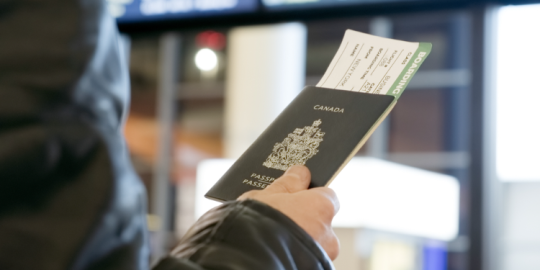Different perceptions of work-life balance can make it easier—or not—to take time off
In most countries, there is a legally mandated minimum of paid days off work that a worker is entitled to. The US is an exception in this case because it has no federal law regulating a minimum number of paid vacation days. However, it's not only the law that affects the ability to take time off. Different cultural norms around productivity, loyalty to the company, work-life balance, and the roles of fathers in families can really impact expats' ability to request time off work in different countries.
For example, in Japan, all workers are legally entitled to 10 to 20 days of paid days off work (whether it's only 10 or more depends on how long they've been working for the company). However, the work culture makes it taboo to take time off work. The culture of overwork has even led to the coining of a term, karoshi, to designate deaths from overwork. It has a gendered aspect because women tend to drop out of their jobs by the time they have a first child, as it becomes impossible to balance work and child-raising. Men, meanwhile, are expected to sacrifice time with their family—even their newborns—to dedicate to overtime at the company.
There can exist social pressure to appear productive even if one is not completing much work. Slack's study, State of Work 2023, found that office workers in Japan, Singapore and India are much more likely than workers in other countries of “performance work”: always appearing busy, for instance, by keeping their “online” status active on Teams and regularly informing their colleagues that they are working.
An expat from a country where there is less pressure for visible markers of productivity might struggle with a corporate culture where colleagues inform each other of how much they are working from home. This might feel like a breach of the separation between work and life for that expat. It's always a good idea to have an in-depth conversation with HR and your manager about these issues when starting to work there. Local colleagues might also be more lenient and understanding with you – at least initially – because they know you are new to not only the company but also the country.
The opposite might also be true: an expat from a country with less work-life balance might at first find it strange to adapt to a more relaxed approach to working life. Spain, for one, is one of the best countries for work-life balance. It actually ranked second worldwide in the 2023 Global Life-Work Balance Index published by the HR company Remote. It is the third country worldwide (after France and Italy) for the highest number of hours that workers devote to leisure and entertainment activities unrelated to work.
While siesta culture is in decline, some Spanish companies do still give 1-2 hours off to their employees in the early afternoon. Alternatively, they might give a fairly long lunch break. Other companies practice the jornada intensiva (“intensive working day”) during summer, where employees work non-stop until 3 p.m. (with no lunch break) and are then allowed to leave the office early to enjoy the longer hours of sunlight. Expats who are used to the 9-to-5 routine in any season might find this strange at first. They might, for example, have to remember to contact their manager about work-related matters only before 3 p.m.
All aspects of the dress code are not written down in the official rules
The most important aspects of the dress code will be written down in the official employment policies of the company. In this case, they will be available on the company's website or in the documents provided to you during your onboarding process. They will also be verbally brought up by HR during your interview or boarding process. They not only concern the general norms in that country concerning professionalism but also the specific corporate image that your company wants to project.
What aspects of the dress code are unlikely to be in the official rules but still affect the impression you create and the way you blend into the country's culture? Seasonal colors, for one. In the United Kingdom, for example, it is the norm to wear darker and more neutral colors in winter. Not just black but also gray, brown, burgundy/wine red, navy blue, and dark purples. No company will create a formal policy that says, “Employees are not allowed to wear pink in winter,” which is simply ridiculous. Yet, wearing the wrong colors or patterns seasonally might still get you odd looks (or even comments!) and subtly affect the professional image you project.
Wearing a bright yellow, flowery blazer to work in the greyest part of winter in November-January in the UK will seem inappropriately cheerful and flashy, even if it is technically part of a business casual wardrobe. You will immediately come across as an expat who has not understood the local culture well yet. This might affect your chances of, for instance, being offered a promotion for a client-facing role.
How conservative or liberal a country is when it comes to gender norms also (rather unfortunately!) affects unwritten dress code norms, especially for women. Since Saudi Arabia opened its borders to non-religious tourism in 2019, it has removed the legal requirement for women in the country to wear a headscarf or even an abaya (long, foot-fitting robe, often black). To blend in culturally, many expat women still wear the abaya when out in public, though (e.g., at the market).
At work, including in non-Saudi workplaces like American schools, expats are still expected to conform to certain norms of modesty, even if there are no precise guidelines about modest dressing. Generally, this means no skirts shorter than ankle length, no cleavage, and no tops shorter than elbow length.
Ethnic wear is also considered professional in some countries, and it might even be regarded as a sign of respect and acculturation when expats adopt it. For instance, in India, a kurta, a saree, and a salwar kameez can be considered business casual for women as long as they are not too heavily embroidered or decorated. A salwar kameez is a long tunic and a pair of loose matching pants, while a kurti is a slightly shorter tunic (usually thigh-high) that is usually embroidered.
In Indian companies with a business casual dress code, kurtis with dark jeans and ballet flats are fine to wear. Expats can, of course, stick to Western business casual, but adopting local ethnic wear might signal a deeper degree of acculturation to local colleagues, which is usually a positive thing.
Food is an often overseen aspect of work culture – but it's important
Food is known to be an important aspect in general. But in work culture, specifically, it's often overlooked. Yet food and the habits around sharing, serving, gifting, and complimenting it are a subtle but effective way of networking, creating bonds, and showing respect. Like wearing culturally appropriate clothes, mastering the culturally bound norms around food as an expat will help you give locals the positive impression that you respect their culture.
Business dinner etiquette is one of the clearest examples of the importance of food in adapting to the work culture in a foreign country. Some roles or fields, such as sales and account management, may require you to attend these dinners more often. However, much of the same etiquette applies to lunch between colleagues and end-of-year parties.
For example, in China, if you are eating with an older or more senior colleague, wait for them to start eating and pour them a drink (even non-alcoholic ones!) before you begin to eat. It's a good habit, even when your colleagues are not younger or are your equals in the work hierarchy – it shows respect. When you are sharing food with someone, even French fries, don't take the last piece – leave it for the other person. Use polite, indirect phrases to refuse food when you don't want it: don't say “I don't like this, sorry” say something like “Thank you, but I am full” instead.
In France, an obscure 19th-century law about public hygiene made it illegal to eat lunch at your workplace. Even if this law sounds outdated in modern times, the French still culturally look down on having lunch alone at one's desk. Lunch breaks in France can last for as long as two hours, and they are seen as an opportunity to disconnect from work and socialize with your colleagues. A 2016 study by The Local France found that close to half of French employees spend over 45 minutes on their lunch, whereas only 10% and 3% of British and American employees do that. So, as an expat in France, if you stay at your desk to eat rather than join the others, you might come across as unfriendly or a workaholic.
These are just a few examples of how fairly simple and largely unwritten norms around food at work can really change the way you, an expat worker, connect with your new colleagues.
















